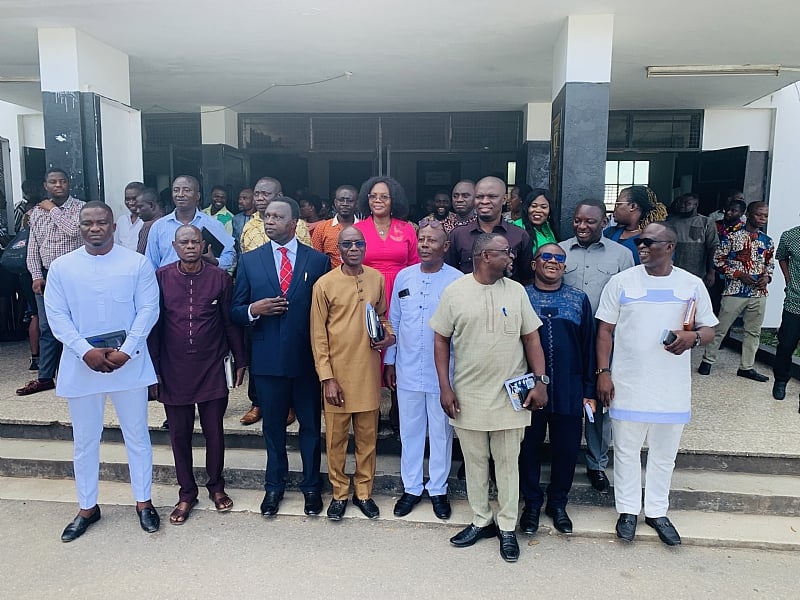The Parliamentary Select Committee on Education embarked on an oversight tour of Senior High Schools in the Central Region, marking a continuation of their nationwide assessment of the educational landscape. This initiative, following a similar exercise in the Western Region, underscores the Committee’s commitment to gaining a firsthand understanding of the challenges and successes within Ghana’s secondary education system. The inclusion of prominent education advocate Kwadwo Ye-large, widely recognized as Political Doctor, further amplifies the significance of this tour, bringing a powerful voice of advocacy and experience to the forefront. The tour aims to gather crucial data and insights that will inform parliamentary recommendations and ultimately contribute to the enhancement of educational policy and practice.
The oversight tour commenced with a high-level meeting with the Central Regional Minister, setting the stage for a collaborative dialogue on the state of education within the region. Discussions centered around key issues including infrastructure needs, teacher deployment strategies, academic performance trends, and the ongoing transition away from the double-track system. This initial engagement provided a valuable platform for sharing perspectives and identifying critical areas requiring attention and intervention. The exchange of information between the Committee and the Regional Minister laid the groundwork for a more in-depth exploration of these issues during subsequent school visits.
Following the meeting, the Committee, led by Chairman Hon. Peter Nortsu-Kortoe, embarked on visits to a number of prominent Senior High Schools in the region, including Holy Child School, Adisadel College, Ghana National College, Aggrey Memorial SHS, and Aburaman SHS. These visits offered the Committee an opportunity to directly engage with school heads, teaching staff, and students, providing a multifaceted perspective on the realities of educational delivery. The Committee sought to assess the effectiveness of current government policies, identify challenges faced by schools, and gather vital data to inform their recommendations to the Ministry of Education. This hands-on approach emphasizes the Committee’s commitment to grounding their findings in practical experience and direct observation.
At each school, the Committee engaged in comprehensive discussions with stakeholders, exploring diverse perspectives and gaining a comprehensive understanding of the specific needs and challenges faced by each institution. This direct interaction allowed the Committee to probe deeper into issues raised during the initial meeting with the Regional Minister, gaining valuable insights into the practical implementation of educational policies and their impact on schools. The Committee’s commitment to gathering data from a wide range of stakeholders demonstrates a holistic approach to understanding the intricacies of the educational landscape. These interactions will provide the Committee with a robust foundation upon which to formulate effective recommendations for policy improvement.
Kwadwo Ye-large, popularly known as Political Doctor, played a prominent role during the tour, emphasizing the importance of such engagements in shaping effective education policy. He highlighted the value of active listening, continuous learning, and persistent advocacy in pursuit of sustainable solutions for the challenges confronting Ghana’s educational system. Ye-large’s passionate advocacy for education underscores the significance of these oversight visits in amplifying the voices of stakeholders and ensuring that policy decisions are informed by the realities on the ground. His presence on the tour brought a heightened level of public attention to the importance of investing in education and working collaboratively to improve outcomes for students.
The ongoing regional oversight tours undertaken by the Parliamentary Select Committee on Education represent a crucial element of a broader national effort to monitor and evaluate the progress of educational reforms. The findings from these visits will be compiled into a comprehensive report, providing valuable insights to guide parliamentary deliberations and inform ministerial action. The Committee’s meticulous data collection and analysis will provide a robust foundation for evidence-based policymaking, contributing to the long-term improvement of Ghana’s educational system. The inclusion of prominent advocates like Political Doctor adds a dynamic dimension to these oversight efforts, strengthening the link between policy and practice and ensuring that the voices of those most impacted by educational reforms are heard.














